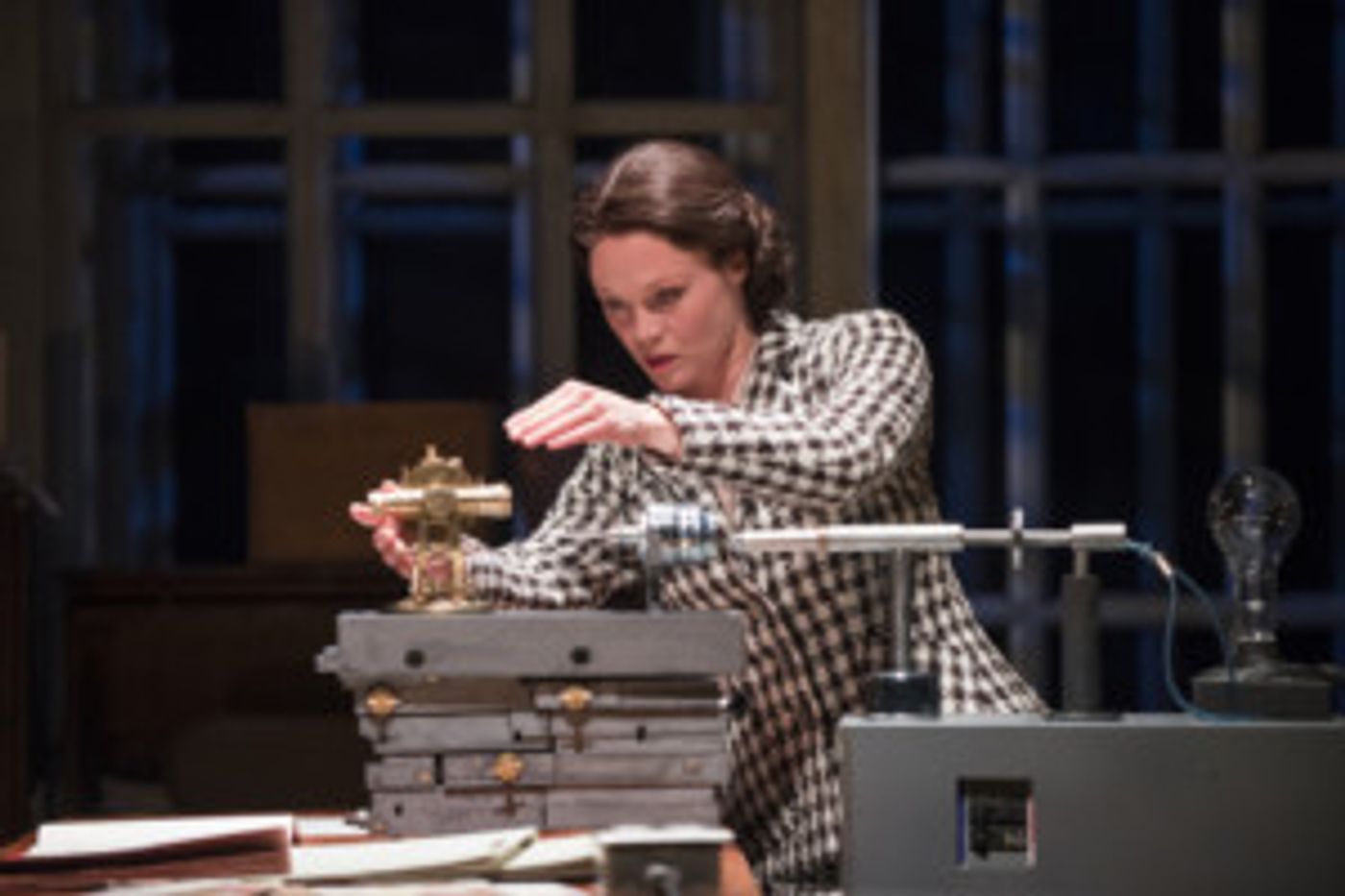Review: PHOTOGRAPH 51 at Court Theatre

When Dr. Rosalind Franklin, portrayed by the formidable Chaon Cross, makes her first entrance in Court Theatre's PHOTOGRAPH 51, it's immediately clear that she inhabits a world dominated by men. Director Vanessa Stalling arranges the rest of the cast (who are all male) on the upper level of Arnel Sancianco's two-story set so that they literally look down on Franklin as she appears, last, on the ground floor. This striking image sets the tone for playwright Anna Ziegler's imaginative rendering of an often-overlooked piece of history: the essential contributions of chemist Rosalind Franklin to the discovery of DNA's configuration in the 1950s.
Working at King's College London, Franklin and her assistant Ray Gosling produced the famous 'Photo 51', an X-ray diffraction image of crystallized DNA, which provided crucial evidence for University of Cambridge scientists James Watson and Francis Crick to develop a model of DNA's double-helix structure. Watson, Crick, and Franklin's colleague from King's, Maurice Wilkins, went on to receive the 1962 Nobel Prize for their work on DNA. The Nobel Committee did not extend posthumous recognition to Franklin, who died of ovarian cancer in 1958.
Ziegler's script vindicates Franklin's role in this breakthrough discovery, while offering an indicting commentary on the nature of gender relations in the workforce, particularly in male-dominated fields such as the sciences. Throughout the play, Franklin deals with myriad micro-aggressions: male colleagues addressing her as "Rosie" or "Miss Franklin" rather than "Dr. Franklin"; Wilkins offering her a box of chocolates as a peace offering because "kindness always works with women"; and Watson and Crick tuning out her lecture to instead comment on her personal appearance. While Franklin stands her ground with dignity, it's clear that the endless struggle to be treated as an equal by her colleagues is costly to her personal well being, not to mention her professional success.
Further, in this play, Franklin's male colleagues largely narrate her story, a choice that reflects the nature of the historical record surrounding her achievements. As production dramaturg Derek Matson notes, Watson portrayed Franklin in an "outrageously misogynist" light in his memoir, The Double Helix, conveniently published ten years after she had died. Though personal friends and family have attempted to correct the record in subsequent accounts, Franklin's own voice is mostly lost to history. Nevertheless, Ziegler punctuates the male voices with eloquent, though necessarily speculative, glimpses into Franklin's rich inner life. In the hands of leading lady Chaon Cross, the result is a complex heroine with a brilliant mind, a rigorous work ethic, exceptional integrity, and a sensitive soul.
A strong ensemble cast joins Cross, with standout performances from Nathan Hosner as Wilkins, Franklin's colleague who finds himself attracted to her, and Alex Goodrich as Watson, the cocky young hotshot who memorialized "Rosie" in his derogatory memoir. Gabriel Ruiz gives a comedic turn as Gosling, the eager PhD student who assists Franklin and Wilkins at King's. Another PhD student and later colleague, Don Caspar (Yousof Sultani), comes the closest to understanding Franklin as a person, though the gulf between Franklin and her male colleagues remains insuperable until her untimely death.
One final note: though gender relations are a primary concern of this play, it would be misleading not to mention other compelling aspects of Ziegler's text. In a style reminiscent of Tom Stoppard, Ziegler muses on themes such as the nature of beauty, the connections between science and art, the weight of regrets and unfulfilled desires, and the question of whether it's possible to 'begin again' and change one's life. It's a thought-provoking text that is worth reading, either before or after seeing it live, if only to save one's hand the trouble of scribbling down memorable lines in a dark theater.
PHOTOGRAPH 51 plays through February 17 at Court Theatre, 5535 S. Ellis Avenue, Chicago, IL 60637. Tickets are available at 773.753.4472 or www.courttheatre.org.
Photo credit: Michael Brosilow
Review by Emily McClanathan
Reader Reviews

Videos

